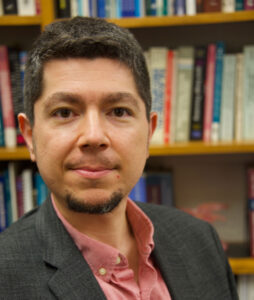NSF funds Onur Apul’s research into novel approach for eliminating PFAS
 Investigating a possible method for eliminating the toxic per- and polyfluoroalkyl substances, or PFAS, is the objective of a new National Science Foundation-funded study led by Onur Apul at the University of Maine.
Investigating a possible method for eliminating the toxic per- and polyfluoroalkyl substances, or PFAS, is the objective of a new National Science Foundation-funded study led by Onur Apul at the University of Maine.
NSF awarded $250,000 for Apul, an assistant professor of environmental engineering and Mitchell Center faculty fellow, to research how to remove PFAS, also known as “forever chemicals”, from spent granular activated carbons (GACs).
Many municipalities across the U.S. use GACs, porous substances typically made with coal, charcoal, wood or coconut shells, to adsorb PFAS from their drinking water, since destroying the chemicals is a significant challenge, Apul says. Once the GACs can no longer intake PFAS, they are thrown out or incinerated. Apul says PFAS can then leach from the discarded GACs in landfills into ground or surface water. Burning GACs will release PFAS into the atmosphere.
Rather than discarding them, PFAS-laden GACs can be reused through thermal regeneration, which early research indicates may cause the PFAS in them to decompose, Apul says. For their NSF-funded study, he and David Hanigan, an associate professor with the University of Nevada Reno Department of Civil and Environmental Engineering, and two Ph.D. students will try to determine what properties of GACs, particularly charcoal, and PFAS cause the toxic chemicals to decompose, and which conditions of regeneration can enhance the process without inhibiting GAC recovery.
NSF funds Apul’s research into novel approach for eliminating PFAS
